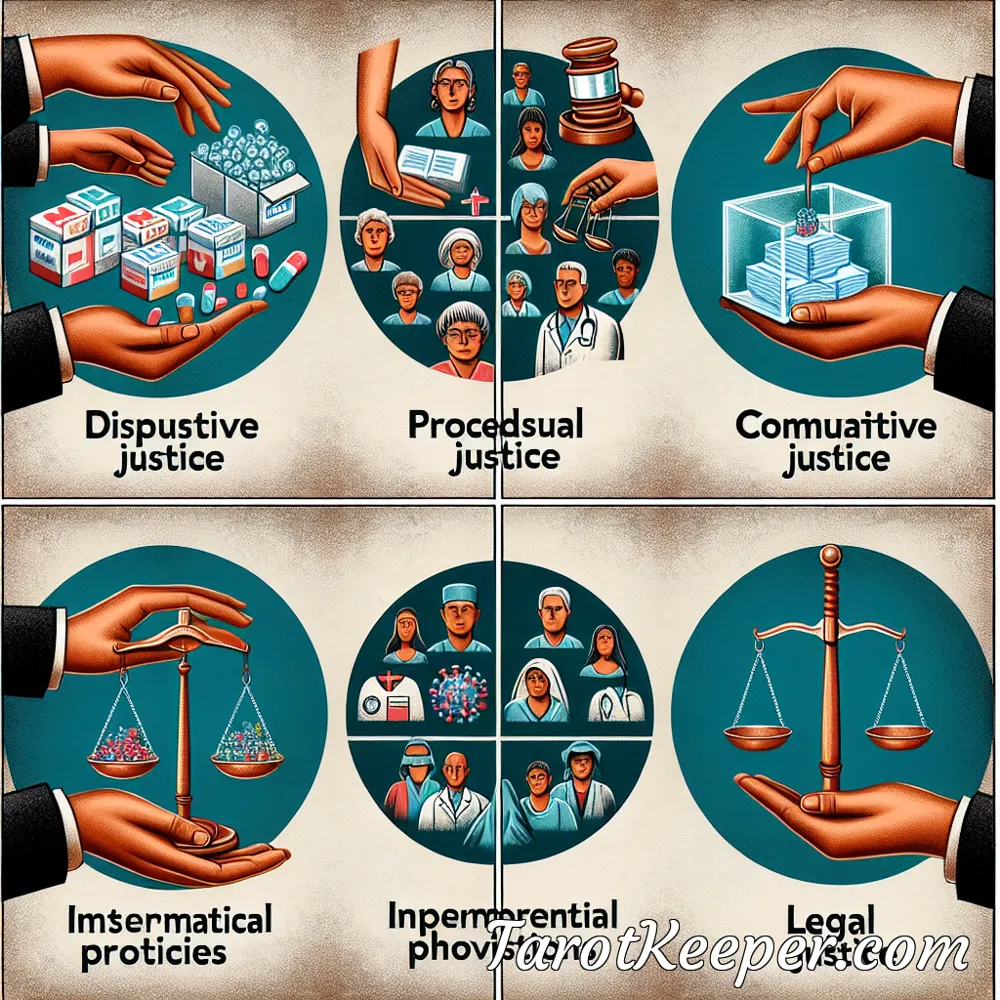


When it comes to health outcomes, the concept of justice plays a crucial role in ensuring fair and equitable access to healthcare services and resources. The impact of justice on health outcomes is far-reaching, influencing everything from healthcare delivery to patient experiences. In this article, we will explore the significance of justice in health outcomes and how it shapes the overall landscape of healthcare.

Justice in health outcomes refers to the fair and impartial distribution of healthcare resources, services, and opportunities. It encompasses the ethical and moral principles that guide healthcare decision-making, ensuring that all individuals have access to the care they need, regardless of their background, socioeconomic status, or other determining factors. The pursuit of justice in health outcomes is intrinsically linked to the goal of achieving health equity, where everyone has the opportunity to attain their highest level of health.
There are several dimensions of justice that are relevant to health outcomes:
Distributive justice focuses on the fair allocation of healthcare resources, such as funding, medical equipment, and personnel. It seeks to address disparities in access to care and ensure that resources are distributed in a manner that promotes equal opportunity for health and well-being.
Procedural justice pertains to the fairness and transparency of decision-making processes within the healthcare system. It emphasizes the importance of involving patients and stakeholders in healthcare decisions, ensuring that their voices are heard and their rights are respected.
Commutative justice deals with the fairness and integrity of individual healthcare transactions, such as doctor-patient interactions and billing practices. It emphasizes the importance of trust, honesty, and respect in the delivery of healthcare services.
Interpersonal justice focuses on the quality of interactions between healthcare providers and patients, as well as among healthcare staff. It encompasses aspects such as empathy, dignity, and respect in the delivery of care, recognizing the impact of interpersonal relationships on health outcomes.
Legal justice pertains to the adherence to laws, regulations, and ethical standards within the healthcare system. It ensures that healthcare practices comply with legal and ethical norms, safeguarding the rights and well-being of patients and healthcare professionals.
The presence or absence of justice in healthcare has a profound impact on health outcomes at both individual and population levels. When justice is upheld, individuals are more likely to receive timely and appropriate care, leading to better health outcomes and improved quality of life. Conversely, when justice is compromised, disparities in health outcomes may arise, contributing to inequalities in health status and access to care.
Justice in health outcomes plays a critical role in ensuring equitable access to care for all individuals, regardless of their socioeconomic status, geographic location, or other determinants of health. By addressing disparities in access to healthcare services, justice promotes the principle that everyone should have the opportunity to achieve optimal health outcomes.
When justice is integrated into healthcare delivery, it can help reduce health disparities among different population groups. By addressing social determinants of health and promoting fair distribution of resources, justice contributes to narrowing the gap in health outcomes between privileged and marginalized communities.
Justice in health outcomes reinforces the importance of patient-centered care, where individuals are actively involved in decisions about their health and well-being. This approach recognizes the unique needs and preferences of patients, empowering them to participate in their care and fostering trust in the healthcare system.
By upholding principles of justice, healthcare organizations and providers can enhance the quality of care they deliver. This includes promoting ethical practices, fostering a culture of accountability, and prioritizing the well-being of patients, ultimately leading to improved health outcomes and patient satisfaction.
Justice in health outcomes extends beyond individual healthcare encounters to have a broader impact on public health. By addressing social and environmental factors that influence health, justice contributes to creating healthier communities and reducing the burden of preventable diseases and conditions.
While the pursuit of justice in health outcomes is essential, it is not without its challenges. Structural inequities, systemic biases, and resource constraints present barriers to achieving equitable healthcare for all. However, there are also opportunities to address these challenges and advance the cause of justice in health outcomes.
Engaging in health policy and advocacy efforts is crucial for promoting justice in health outcomes. By advocating for policies that prioritize health equity and address systemic barriers, individuals and organizations can drive meaningful change in the healthcare landscape.
Education and training programs can help healthcare professionals and stakeholders develop a deeper understanding of the principles of justice in health outcomes. By integrating justice-focused curricula and training initiatives, the healthcare workforce can be better equipped to address disparities and promote equitable care.
Community engagement plays a vital role in advancing justice in health outcomes. By involving diverse communities in healthcare decision-making and resource allocation, healthcare organizations can gain valuable insights and perspectives that inform more equitable and inclusive practices.
Utilizing data to inform healthcare decision-making can help identify disparities in health outcomes and guide interventions aimed at promoting justice. By leveraging data analytics and health information systems, healthcare providers and policymakers can target areas where justice is most needed.
In conclusion, justice in health outcomes is a fundamental principle that underpins the delivery of healthcare services and the achievement of optimal health for all individuals. By addressing disparities, promoting fairness, and upholding ethical standards, justice contributes to equitable access to care, reduced health disparities, and improved healthcare quality. While challenges exist, there are opportunities to advance the cause of justice in health outcomes through policy, education, community engagement, and data-informed decision-making. By prioritizing justice in healthcare, we can create a more equitable and inclusive healthcare system that benefits individuals and communities alike.
Have questions or need guidance? Reach out to us anytime at [email protected]
We're here to help you on your tarot journey.
© Copyright 2024 by TarotKeeper.com. All rights Reserved.